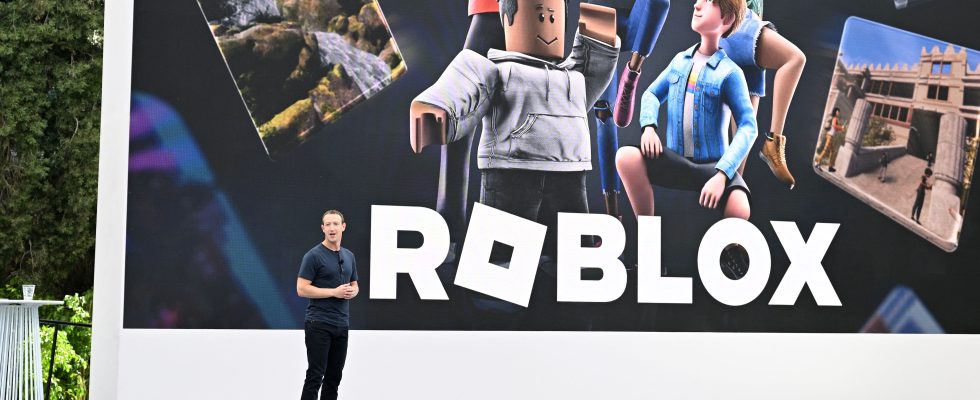Now you can banter daily with some of your favorite celebrities. The rapper Snoopdog, the world-famous Youtuber MrBeast and even Paris Hilton lend their voices to the personalities of the new “chatbots” (literally, talking robots) from Meta, Mark Zuckerberg’s web giant. The company also unveiled new augmented and virtual reality devices this Wednesday, September 27, hoping to catch up with the latest generation of artificial intelligence (AI) and relaunch the “metaverse”.
The boss of the Californian group presented “Meta AI” on Wednesday, his general chatbot, as well as its variation of 28 virtual characters created to react with users. Among them, “Becca, devoted mother to her doggie”, “Max, experienced sous chef”, or even “Amber, detective expert in who did what” (incarnated by the voice of Paris Hilton) or “Zach, the big brother who gently makes fun of you” (played by Mr Beast). Each of these virtual characters should be given their own voice by next year, and will have their own profile on Facebook and Instagram.
Meta’s highly anticipated and “very limited” generative AI
Meta was eagerly awaited on the side of generative AI, which makes it possible to produce all kinds of content (texts, images, sounds, code, etc.) on a simple command in everyday language, during this first in-person edition of Connect, the event annual Meta for developers. The social media giant has still not launched a chatbot until now, while its neighbors and competitors, OpenAI, Google and Microsoft in the lead, are in a frantic race to deploy this technology, conversation interfaces like ChatGPT to the creation tools integrated into their services (online search, email, office automation, etc.).
Meta’s new chatbots “are just making their debut. They are still very limited,” admitted Mark Zuckerberg, specifying that they do not currently have access to the Internet in real time, unlike “Meta AI”. Meta is moving cautiously in the deployment of generative AI because these new systems raise many concerns, in terms of misinformation or data confidentiality. Problems that the parent company of Facebook knows well.
Generative AI is also taking up more and more space in the metaverse, which mixes virtual and augmented realities. “Hey, Meta, write me a funny caption for Instagram about my cat Adobo exercising,” asked Li-Chen Miller, vice president of Meta, during a demonstration where she filmed her cat using to the camera integrated into the new connected glasses made with Ray-Ban, marketed at $300 per pair this fall.
Its new virtual and augmented reality headset
Meta also gave more information on the Quest 3, its new virtual and augmented reality headset presented last June. It will be sold from 500 dollars and available for delivery from October 10. “It’s going to have the best value for money on the market for a good while,” said Meta’s technology director to laughter from the audience at the group’s headquarters in Silicon Valley on Wednesday. Developer journalists detected a dig at Apple, which in June presented its first mixed reality headset, called “Vision Pro”, marketed… At nearly $3,500 at the start of next year. With its new devices that allow virtual living in the real world, Meta hopes to encourage more developers to create applications in the metaverse, and attract users.
“We are not focused on revenue at this stage,” said technology director Chris Cox, assuring that he wanted “above all to build a dynamic ecosystem.” At the end of 2021, during the pandemic, Facebook became Meta with the idea of becoming a metaverse company, described by Mark Zuckerberg as the future of the internet. But the group is going through a difficult time, since it was hit in 2022 with its first drop in advertising revenue since its IPO in 2012, and for the first time in its 20 years of existence, it laid off more than 20,000 people between November and last May.
